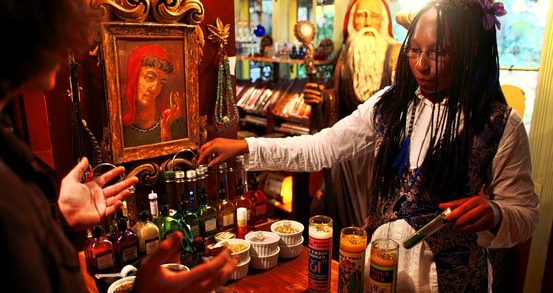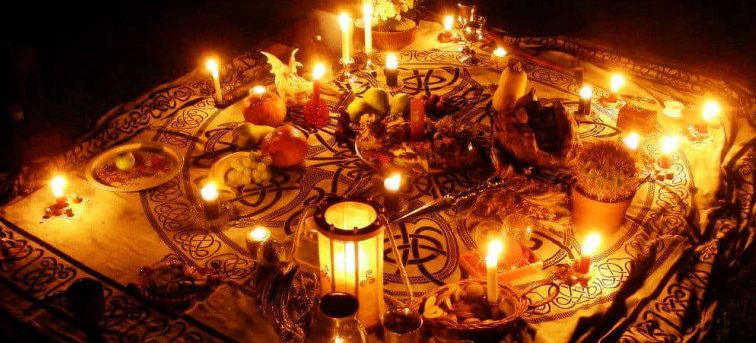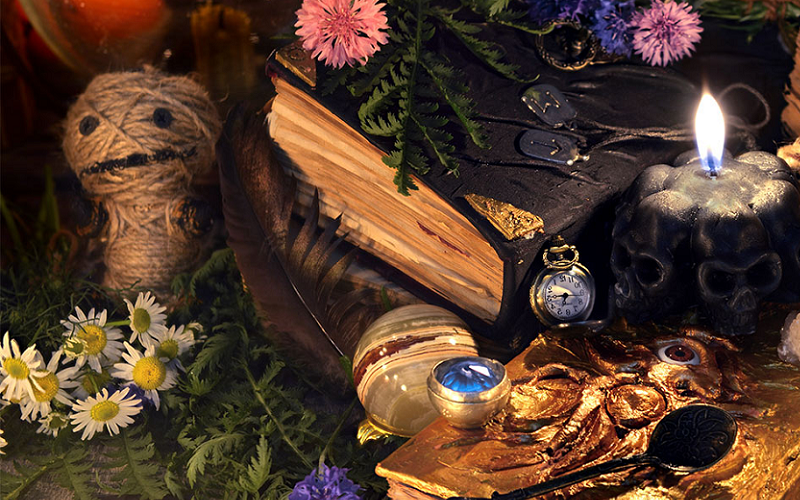Hoodoo and Rootwork are traditional African American spiritual practices that have a rich history dating back to the times of slavery in the Americas. These practices, which involve the use of herbs, roots, and minerals to cast spells and communicate with spiritual forces, have been an important part of African American culture for centuries. Despite facing criticism and stereotypes, Hoodoo and Rootwork have persisted and continue to influence other spiritual and magical practices today.
What Is Hoodoo and Rootwork?
Hoodoo and Rootwork are traditional African American spiritual practices that blend African, Native American, and European folk magic beliefs and customs. These practices involve the use of herbs, roots, minerals, and other natural elements to cast spells, communicate with spirits, and bring about desired outcomes.
Hoodoo practitioners, also known as rootworkers, use these elements to create charms, talismans, and other objects for spiritual protection, healing, and other purposes. The belief system of Hoodoo and Rootwork encompasses the power of spiritual forces and the use of magic to bring about positive change in one’s life.
It is a unique blend of spiritual, cultural, and magical beliefs and practices that have been passed down for generations in African American communities.
Origins of Hoodoo and Rootwork
Hoodoo and Rootwork have their roots in African traditional beliefs and practices, which were brought to the Americas by enslaved Africans. The exact origins of Hoodoo are unclear, but it is thought to have developed in the South during the period of slavery, as a way for enslaved Africans to maintain a connection to their cultural and spiritual traditions.
The influence of European folk magic and Native American spiritual practices can also be seen in the development of Hoodoo and Rootwork. For example, hoodoo practitioners often use herbs and roots associated with European witchcraft, and some hoodoo beliefs and rituals have similarities to Native American spiritual practices.
Hoodoo and Rootwork are a unique fusion of African, European, and Native American beliefs and practices, shaped by the experiences of enslaved Africans in the Americas. The tradition has been passed down from generation to generation, and continues to be an important part of African American cultural and spiritual heritage.

Practices and Beliefs of Hoodoo and Rootwork
The practices and beliefs of Hoodoo and Rootwork revolve around the use of herbs, roots, minerals, and other natural elements to cast spells, communicate with spirits, and bring about desired outcomes. Hoodoo practitioners, also known as rootworkers, use these elements to create charms, talismans, and other objects that are believed to possess spiritual power.
Conjuring and spell-casting are central to hoodoo practices, and hoodoo practitioners may also use divination techniques to gain insight and guidance from spiritual forces. The belief system of Hoodoo and Rootwork encompasses the power of spiritual forces, and the idea that magic can be used to bring about positive change in one’s life. Hoodoo practitioners often work with specific spirits, such as ancestors or saints, to achieve their goals.
The role of the hoodoo practitioner is to understand and work with these spiritual forces to bring about positive change in their clients’ lives. Overall, the practices and beliefs of Hoodoo and Rootwork are intertwined with the belief in the power of spirituality and magic to bring about positive change in one’s life.

Cultural Significance of Hoodoo and Rootwork
Hoodoo and Rootwork have been an important part of African American cultural and spiritual heritage for centuries. These practices have served as a way for African Americans to maintain a connection to their cultural and spiritual traditions, despite the challenges and oppression faced during the period of slavery and beyond.
Hoodoo and Rootwork have also been a source of comfort and empowerment for African Americans, providing a way for them to take control of their lives and address challenges and obstacles. The cultural significance of Hoodoo and Rootwork extends beyond African American communities, and has influenced other spiritual and magical practices, including New Age spirituality and modern witchcraft.
The legacy of Hoodoo and Rootwork can be seen in contemporary society, where an interest in these practices continues to grow and evolve.

Criticisms and Controversies Surrounding Hoodoo and Rootwork
Hoodoo and Rootwork have faced criticisms and controversies throughout their history. One of the major criticisms is the misrepresentation and perpetuation of stereotypes about these practices, particularly in popular media and entertainment. These stereotypes often depict hoodoo practitioners as malevolent and dangerous, and hoodoo practices as dark and evil.
This has led to a misunderstanding of the tradition and a fear of hoodoo and rootwork in some quarters. Criticisms have also come from religious groups, who view hoodoo practices as superstitious and incompatible with their beliefs. There are also ethical concerns surrounding hoodoo practices, particularly in the use of magic to bring about harm or control others.
These criticisms and controversies highlight the ongoing challenges faced by hoodoo and rootwork practitioners, and the need for a deeper understanding and appreciation of this tradition. Despite these challenges, the tradition of Hoodoo and Rootwork continues to persist, and its cultural and spiritual significance remains strong.

